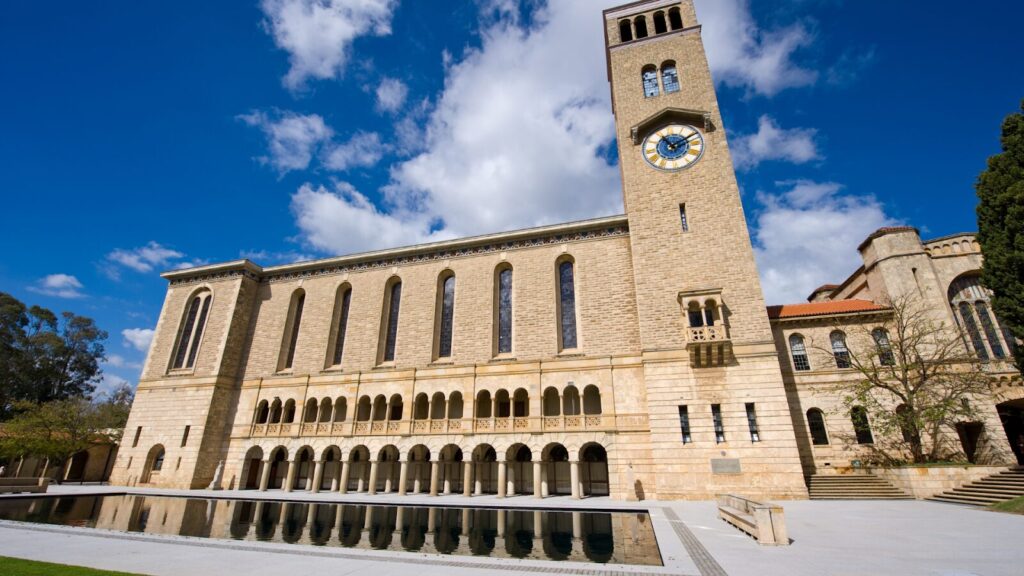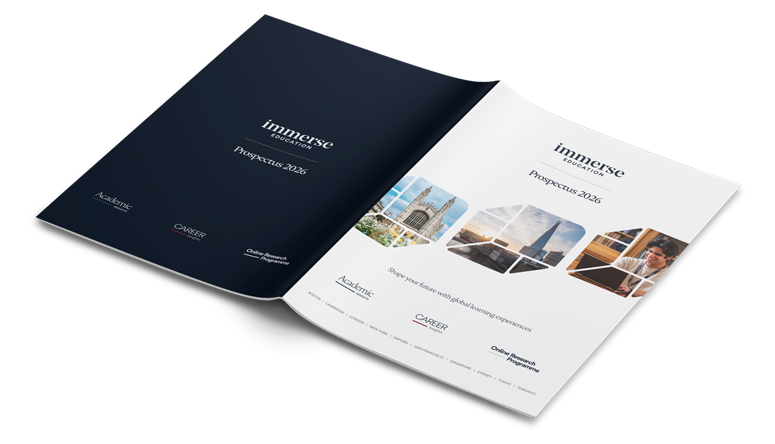Applying to the Australian National University (ANU) is a bold and exciting step toward shaping your future.
As one of the world’s most prestigious universities, ANU attracts ambitious students who want to push their academic limits while gaining global perspectives. But with a reputation for excellence comes highly competitive admissions.
If you’re wondering how to get into the Australian National University, this guide will give you clarity.
You’ll learn what ANU looks for, how to prepare academically, and how experiences like the best pre college programmes can strengthen your application.
Why Choose the Australian National University?
ANU consistently ranks among the world’s top universities, celebrated for its research output, Nobel laureates, and academic rigour. Located in Canberra, Australia’s capital city, the university combines a rich intellectual environment with access to global institutions and policymakers.
For students aiming to make an impact in their chosen field – whether that’s international relations, sciences, or the arts – ANU represents opportunity, challenge, and recognition on a global stage.
But prestige comes with selectivity. Understanding what ANU values in its applicants is the first step if you’re serious about learning how to get into the Australian National University.
ANU alumni often go on to work in government, international organisations, research labs, and global companies. The university’s close ties with national and international policymakers make it particularly attractive for students pursuing careers in diplomacy, law, and global governance.
For STEM graduates, ANU’s partnerships with research institutes provide a pathway to cutting-edge innovation.
Understanding how to get into Australian National University: Admissions Basics
If you’re exploring how to get into the Australian National University, it helps to know that ANU admissions are holistic but academically focused. While requirements vary across faculties and degrees, several elements consistently matter:
- Academic Results: Your grades carry significant weight. For domestic students, ANU often sets an ATAR requirement in the mid-to-high 90s for competitive degrees like Law or Medicine. For international applicants, this translates to high IB scores (typically 37–42) or strong A-Level results (AAA or higher). Advanced coursework, such as AP exams, can also demonstrate readiness.
- Subject Prerequisites: Certain programmes – especially in sciences, engineering, and the arts – require specific subjects. For example, Mathematics Methods or Specialist Mathematics may be mandatory for STEM pathways, while Visual Arts applicants may need to present a portfolio.
- Additional Materials: Some degrees, such as performance arts, architecture, or design, may ask for portfolios, auditions, or additional essays.
- English Proficiency: International students must demonstrate English skills through recognised tests like IELTS (minimum 6.5 overall), TOEFL, or equivalent qualifications.
Tip: Always check the faculty-specific requirements on the official ANU admissions website before finalising your subject choices.
Academic Preparation: Subjects & Grades That Matter
Your academic record is the foundation of your application. Here’s how to strengthen it:
1. Plan Ahead
Choose high school subjects that align with your intended degree. For example, if you want to study Computer Science, prioritise advanced Mathematics and Physics.
Humanities students may need a balance of essay-based subjects such as History, Literature, or Politics. Planning early ensures you don’t miss crucial prerequisites and gives you time to develop academic strengths that reflect your chosen career goals.
2. Maintain Rigour
Enrol in challenging courses when available – IB Higher Level, A-Level, or AP – to show that you thrive in demanding environments.
Universities like ANU value students who have demonstrated persistence and excellence in rigorous subjects. Consistently taking on academically stretching classes signals resilience and the confidence to tackle complex concepts, both of which are essential qualities in competitive admissions.
3. Address Gaps
If you’re missing a prerequisite, consider bridging programmes, online accredited modules, or summer catch-up courses.
For example, if you didn’t take Chemistry but want to study Biology at ANU, a bridging science programme can help you meet requirements.
Taking initiative to address weaknesses demonstrates determination, adaptability, and resourcefulness – traits that ANU recognises in students who can overcome challenges and still achieve academic success.
4. Study Strategies
Consistency matters. Set aside weekly time to revise, seek feedback from teachers, and practise past exam papers. Create flashcards, form study groups, and explore online resources like MOOCs (edX, Coursera) to supplement classroom learning.
Building a regular study routine helps you manage stress, develop focus, and maintain balance, ensuring that your preparation translates into strong performance throughout your academic journey.
Tips for International Applicants: If you’re applying from overseas, highlight equivalencies clearly in your application. ANU admissions teams are familiar with IB, A-Levels, AP, and national curriculums like the Indian CBSE or the Singapore A-Levels. However, attaching syllabi or transcripts that clarify course content can strengthen your application.
Join the Immerse Education 2025 Essay Competition
Follow the instructions to write and submit your best essay for a chance to be awarded a 100% scholarship.

How the Best Pre College Programmes Strengthen Your Application
Grades alone won’t set you apart when it comes to how to get into the Australian National University. ANU wants to see evidence of intellectual curiosity, initiative, and the ability to thrive in a university environment. That’s where the best pre college summer programmes make the difference.
The best pre college programmes provide:
- Hands-On Experience: Engage in research projects, case studies, and lectures that mirror university life. STEM students might participate in lab experiments, while humanities students may debate pressing global issues.
- Faculty Insights: Learn directly from tutors and subject experts whose perspectives you can reference in your application. For example, mentioning a seminar on international law in your personal statement demonstrates both preparation and ambition.
- Personal Growth: Show time management, persistence, and the ability to collaborate with peers from diverse backgrounds. These are skills that ANU values just as much as academic achievement.
Examples of Impactful Programmes:
- A participant in a pre-college international relations course might reference simulations of UN debates when applying to ANU’s Politics and International Studies programme.
- A student in a biology summer school could highlight lab experiments on genetics to demonstrate preparation for ANU’s biomedical sciences.
- A pre-college leadership programme could showcase teamwork, communication, and initiative – all qualities ANU seeks in its applicants.
When you join programmes like pre college summer programmes for high school students, you gain stories, experiences, and evidence that strengthen your personal statement. For instance:
Instead of simply saying, “I’m passionate about economics,” you can demonstrate it:
“During my pre-college economics programme, I researched market behaviour under stress, which gave me a real-world perspective on my academic interests.”
Building a Competitive Profile Beyond Academics
ANU looks for more than test scores. They want well-rounded participants who bring leadership, creativity, and initiative – qualities you can begin developing through pre college summer programmes for high school students.
Leadership Roles
Whether as captain of a sports team or founder of a school club, leadership demonstrates responsibility and initiative. Strong leaders show they can inspire peers, manage responsibilities, and achieve goals under pressure.
Highlighting leadership roles also demonstrates maturity and readiness for collaborative academic environments at ANU, where teamwork, problem-solving, and decision-making are integral to both classroom success and wider campus life.
Competitions & Olympiads
Success in academic contests shows ability and ambition. Subject-specific challenges, such as history competitions, can highlight your passion for a field of study.
Achievements in competitions also demonstrate resilience, intellectual curiosity, and a willingness to test yourself against talented peers. These qualities prove that you thrive in competitive, high-stakes environments – the kind you’ll face at ANU.
Internships & Shadowing
Those wondering how to get into the Australian National University are likely hoping for a quality academic experience AND excellent career prospects – and your preparation should reflect your ambitions!
First-hand exposure to your intended field adds depth and maturity to your application. Internships and shadowing experiences provide practical insight into professional life, helping you make informed career choices.
They also demonstrate initiative, independence, and the ability to apply classroom knowledge to real-world contexts. By reflecting on these experiences in your application, you show ANU your readiness to contribute beyond academic theory.
Community Service
Volunteering reveals character, empathy, and a commitment to impact. From tutoring younger students to leading environmental projects, service activities prove you’re motivated to make a difference. Admissions officers recognise students who balance academic ambition with civic responsibility.
Engaging in consistent, meaningful service shows that you’ll contribute positively to ANU’s diverse community while continuing to grow as a responsible, socially aware global citizen.
Tip: Be sure to document these clearly. Instead of just listing activities, highlight roles, outcomes, and measurable impact (e.g., “Led a team of 10 peers in a robotics competition, placing second nationally”).
Application Materials and Timelines
There’s no quick fix when it comes to how to get into the Australian National University. Once you’ve built your academic and extracurricular profile, it’s time to showcase it through your application.
- Personal Statement: Focus on clarity, direction, and programme fit. Mention how academics, extracurriculars, and pre-college experiences connect into one cohesive story. Keep it concise but personal.
- References: Choose referees who can highlight your intellectual curiosity, persistence, and achievements. A teacher who has worked closely with you on an extended project can add valuable credibility.
- Supporting Materials: Include transcripts, English proficiency scores, and – if required – portfolios or audition videos.
- Timelines: Applications to ANU typically open mid-year for the following academic intake. Mark deadlines in advance and create a checklist. Aim to finalise drafts of your personal statement and secure referee agreements at least two months before submission.
Step-by-Step Timeline
18 months before applying:
- Explore ANU degree options and note prerequisite subjects.
- Plan your school subjects to align with entry requirements.
12 months before applying:
- Enrich your profile with extracurriculars, volunteering, or pre-college programmes.
- Begin keeping track of achievements you may want to include in your application.
6–9 months before deadlines:
- Draft your personal statement.
- Ask teachers or mentors for references.
- Gather academic transcripts and supporting documents.
3 months before deadlines:
- Review and polish your application.
- Submit early – ANU Early Offer applications open in March, close mid-May, with offers released in September.
The Broader Impact and Next Steps
Getting into ANU isn’t only about meeting requirements. It’s about showing that you’re prepared to grow in a rigorous academic environment while contributing to a diverse community.
The strongest applicants:
- Align Academics & Experiences: They connect subjects, projects, and extracurriculars into a clear academic journey.
- Demonstrate Curiosity: They use pre-college programmes to prove they’re ready for discovery and challenge.
- Define Success Personally: They don’t just meet minimum requirements; they show how ANU is the right place for their individual goals.
Think beyond admission. How will you contribute once you’re at ANU? Whether it’s through research, student societies, or global exchange, admissions officers look for students who will enrich the campus community.
Conclusion
Gaining admission to the Australian National University requires more than strong grades. It’s about showing academic readiness, curiosity, and commitment through experiences like the best pre college programmes, meaningful extracurriculars, and a focused personal statement.
When you connect academics with purposeful activities, you don’t just meet entry requirements – you prove you’re prepared to thrive in ANU’s challenging environment.
If you’re ready to take that step, download our prospectus or explore Sydney summer school to build the skills and confidence that will set you apart – at ANU and beyond.



















